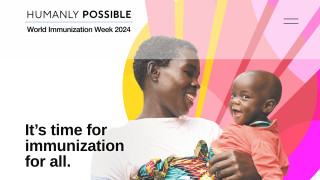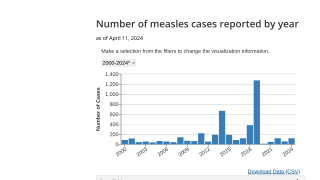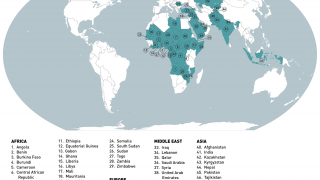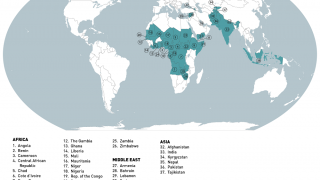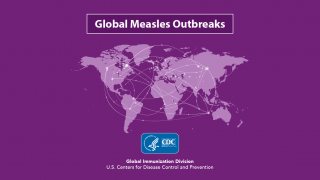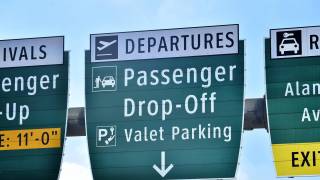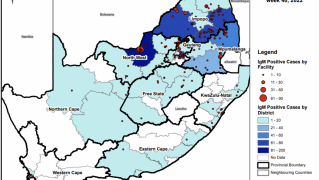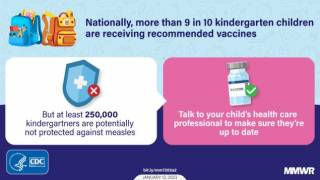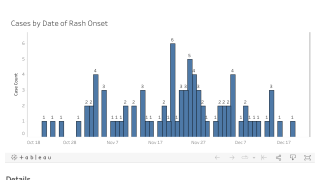Most Children Traveling Abroad Are Not Protected From Measles

A new study reported that most eligible pediatric international travelers were not immunized against the measles virus prior to departure.
This Massachusetts General Hospital (MGH) study published on December 9, 2019, found that despite recommendations from the Advisory Committee on Immunization Practices (ACIP), a large number of children traveling aboard are not protected from the measles virus due to a clinician decision or guardian refusal.
The MGH study was published in JAMA Pediatrics and reported these under-vaccination rates:
- 44.1% of MMR vaccination–eligible infants
- 56.5% of MMR vaccination–eligible preschool-aged travelers
- 88.5% of MMR vaccination–eligible school-aged travelers were not vaccinated at the pre-departure consultation
This study is important since children represent less than 10 percent of international travelers departing the USA but account for about 47 percent of known measles importation cases.
These travel-related measles cases have ‘triggered previous measles outbreaks in the USA.’ such as the 2018-2019 outbreak in New York.
According to the Centers for Disease Control and Prevention (CDC), over 75 percent of the USA’s measles cases during 2019 were related to just a few international travelers.
As of October, over 10 airports in the USA reported potential measles exposures related to infectious travelers.
Emily P. Hyle, M.D., an investigator in the Division of Infectious Diseases at MGH, and lead author of the study, said in a related press release, “Our study suggests the urgent need for greater awareness of the benefits of MMR vaccination for international travelers by pediatricians, as well as by guardians who may fail to recognize measles as a serious illness."
Measles is caused by a highly contagious virus that spreads from person to person by breathing, coughing, or sneezing. People can spread measles up to 4 days before and 4 days after they have a rash.
Measles can lead to serious complications, such as pneumonia, and even death says the ACIP.
The ACIP, which is the vaccine committee of the Centers for Disease Control and Prevention (CDC), says ‘whenever possible, children should complete the routine immunizations of childhood on a normal schedule.
However, travel at an earlier age may require accelerated schedules.’
The ACIP recommends that children receive 2-doses of Measles-Mumps-Rubella (MMR) vaccine doses as part of routine vaccination.
However, due to the increased risk of measles exposure for international pediatric travelers during 2019, ACIP recommends that infants (6 to 12 months) receive 1-dose of the MMR vaccine prior to departure. But this vaccination does not count toward the two-lifetime MMR doses.
Furthermore, international travelers between the ages of 1 to 6 years should receive ‘both’ lifetime vaccine doses before departure.’
And, depending upon the destination, country-specific vaccination requirements for departure and entry vary. For example, proof of yellow fever vaccination is required for entry into certain countries.
The CDC / ACIP say ‘children should receive routine vaccination for hepatitis A virus; hepatitis B virus; diphtheria, tetanus, pertussis; Haemophilus influenzae type b; human papillomavirus; influenza; MMR; Neisseria meningitidis; polio; rotavirus; Streptococcus pneumoniae; and varicella to complete the recommended vaccine series before travel.
Parents should be informed that infants and children who have not received all recommended doses might not be fully protected from these infectious diseases and viruses, concluded these researchers.
Previously, a 2017 study lead by Dr. Hyle found only 47 percent of adults eligible received a vaccination during the pre-trip consultation. The leading reasons for adults not being vaccinated were patient refusal (48%), provider decision (28%), and health system barriers (24%).
And, an editorial published on September 20, 2019, indicates a 3-dose measles vaccine schedule may be needed when visiting ‘outbreak zones,’ such as Ukraine.
To notify all international travelers, the CDC issued a worldwide measles virus Travel Alert in June 2019.
This CDC travel alert says ‘before you travel internationally, regardless of where you are going, make sure you are protected fully against measles. If you are not sure, see your healthcare provider at least 1-month before your scheduled departure.’
The CDC says measles can be prevented with 2-doses of the MMR-II vaccine. Children have the option of getting the Proquad vaccine, which protects against measles, mumps, rubella, and varicella.
As a general notice, the CDC says ‘any vaccine can cause a side effect, which should be reported to a healthcare provider, or to the CDC.’
MGH’s Travelers' Advice and Immunization Practices provide complete pre-travel medical evaluation, including education about the prevention of illness and immunizations and prophylaxis.
The Travel & Immunization Center is a Member of the Global TravEpiNet Program. Global TravEpiNet is a national network of travel clinics across the United States.
Pre-departure travel counseling sessions can be scheduled at Vax-Before-Travel.
Measles vaccine news published by Precision Vaccinations
Our Trust Standards: Medical Advisory Committee
- Clinical Practices for Measles-Mumps-Rubella Vaccination Among US Pediatric International Travelers
- Are 3 Measles Vaccinations Needed?
- CDC: Family Travel Vaccine Recommendations for Infants & Children
- Missed Opportunities for Measles, Mumps, Rubella Vaccination Among Departing U.S. Adult Travelers Receiving Pretravel Health Con







